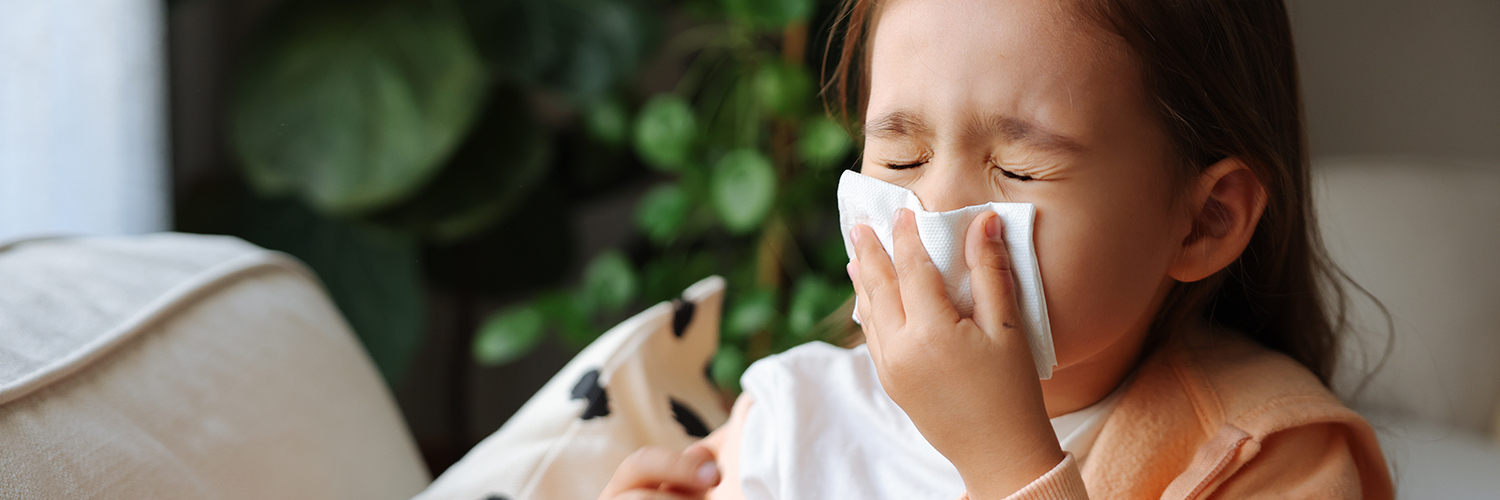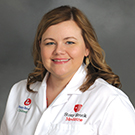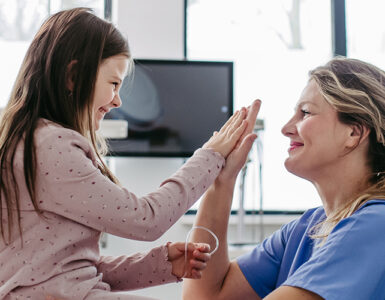When your child suffers from a cold, it can be concerning, especially if it disrupts their sleep or causes them to miss school or other activities. Most colds are harmless and resolve on their own, but there are times when it’s important to see your pediatrician to ensure your child fully recovers.
Common Symptoms of a Cold in Children
The common cold is mostly caused by respiratory viruses and usually leads to symptoms affecting the upper respiratory tract (including the nose, nasal cavity, mouth, throat, voice box and sinuses).
If your child has a cold, the following symptoms are considered normal and do not require medical attention unless they persist for longer than two weeks:
- Runny or stuffy nose
- Sneezing
- Sore throat
- Mild coughing
- Headache
- Mild body aches
- Mild fever (below 100.4°F in children older than two months)
What To Do at Home for a Cold
There isn’t a cure for colds, and in most cases, your child’s symptoms will resolve on their own within seven to ten days. Some tips for making your child feel comfortable include:
- Giving them plenty of fluids (water, broths, or electrolyte drinks like Pedialyte if the child is older than three months)
- Using a cool-mist humidifier to ease congestion
- Offering up to one teaspoon of honey (for children over one) to soothe a cough
- Providing over-the-counter pain relievers for fever or body aches, such as acetaminophen or ibuprofen (this is generally recommended only for children over 4)
- Ensuring they get plenty of rest
- Helping them to blow their nose
- Using saline nasal drops or sprays to loosen mucus
- Offering warm fluids, soups or frozen pops for a sore throat
- Applying an ointment containing camphor, menthol and eucalyptus oils to their chest to help them breathe, such as Vick’s
- Raising the head of their bed with pillows to help reduce congestion
- Preventing their nose from chaffing by applying petroleum jelly
The FDA does not recommend over-the-counter medicines for cough and cold symptoms in children younger than two. If you give your child medication, follow the product’s instructions carefully or talk to your pediatrician about the correct dosage.
When to Seek Medical Attention for Your Child’s Cold
While many colds will go away on their own with rest, fluids and time, they can sometimes lead to complications or other medical conditions.
It’s time to see a doctor when any of these symptoms occur:
- Cold symptoms that persist for more than two weeks or worsen over time
- Fever above 100.4°F that lasts longer than two days (or immediately in infants under 2 months old)
- Difficulty breathing or rapid breathing (if severe, call 9-1-1)
- Severe or persistent cough
- Signs of dehydration (dry mouth, no tears, decreased urination)
- Excessive fussiness or lethargy
- Ear pain or drainage from the ear
If you’re ever unsure whether your child’s cold requires medical attention, it’s best to err on the side of caution and consult your pediatrician. A pediatrician can guide you on the best course of action based on your child’s symptoms and medical history.
At Stony Brook Medicine, our general pediatricians provide comprehensive primary care, including routine well and sick care for children from birth through age 21, at multiple Suffolk County locations. If you have any concerns about your child’s health, don’t hesitate to contact us for an appointment.












